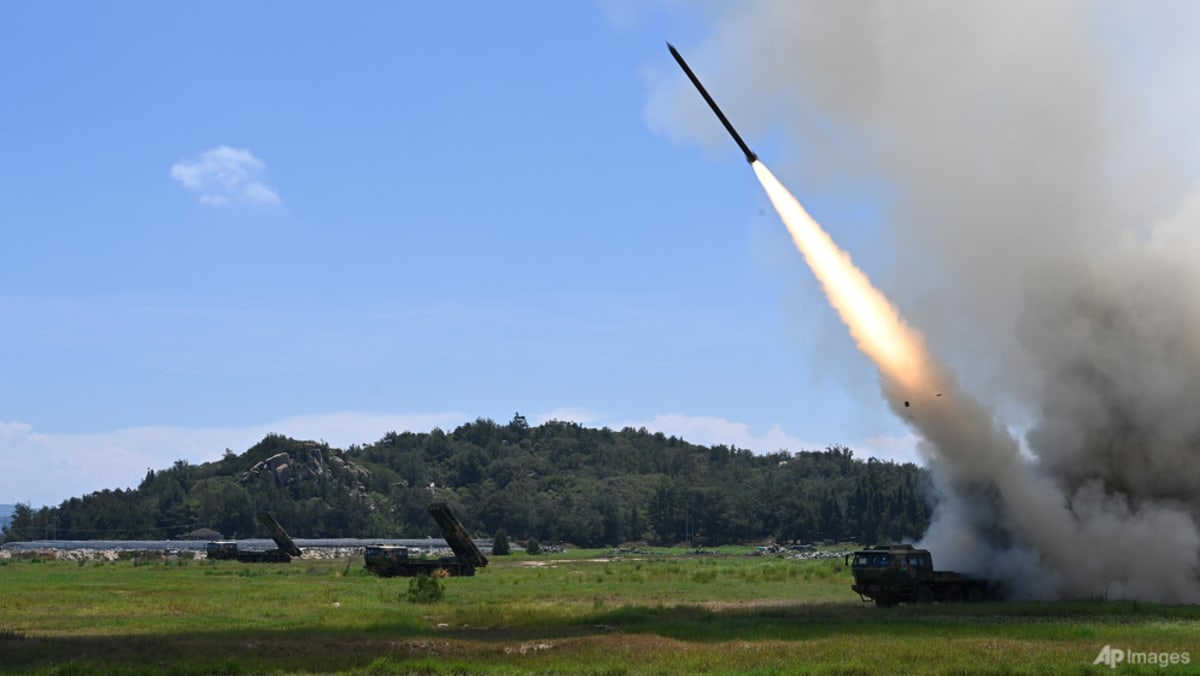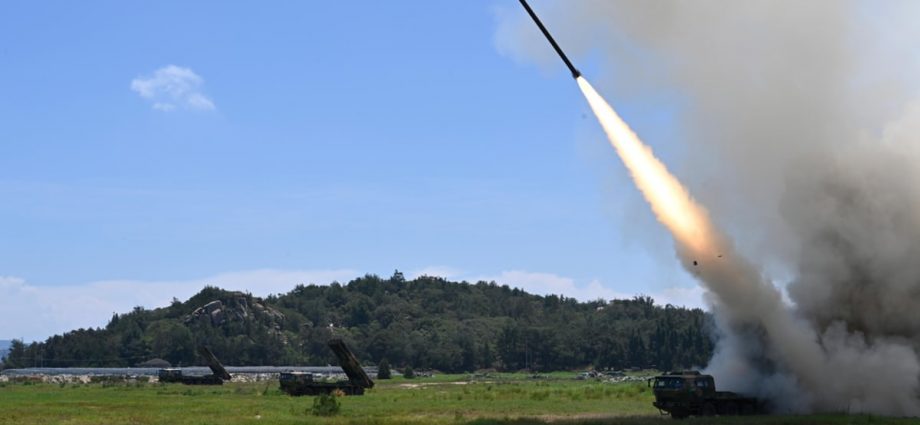
When asked how likely it is that China could invade Taiwan, Mr Wong replied that it is “hard to say” especially as things are becoming more uncertain. The US has no official diplomatic relations with Taiwan but is bound by American law to provide it with the means to defend itself.
“Taiwan is certainly one flashpoint. It can easily become very dangerous, as we have seen in recent events, and can even escalate quite quickly, not because either party deliberately wants this to happen, because as I said, both sides understand the consequences and really do not want to go into conflict,” Mr Wong said.
“The leadership on both sides understand this. But as they say, no one deliberately wants to go into battle, but we sleepwalk into conflict, and that is the biggest problem and danger.”
Mr Wong predicted that the “adversarial relationship” between US and China is likely to stay for quite some time, saying that while both countries have an understanding on “one China”, this situation is starting to change.
“The concern that America has on one hand, that China is rising up and going to take over its place; on the other hand, from China’s point of view, the concern that America is trying to contain China’s rise,” he said.
This dynamic is not helped by domestic politics in either country, Mr Wong said, pointing to how the US has its midterms and China has its party congress. “That makes it difficult for either side to concede any ground, especially during this period,” he said.
SINGAPORE “NOT AN ALLY” OF US
When Mr Wong was asked if Ms Pelosi’s visit gave the reassurance that the US would back its allies, and if he felt that Singapore was an ally of America, Mr Wong said: “We are not an ally to America.”
“We conduct our own foreign policy based on our own vital and core interests in a principled manner,” he said, adding that Singapore has always upheld the “one China” policy.
Mr Wong said Singapore wants to create a framework in the Asia-Pacific, particularly in Southeast Asia, where all the major powers including the US and China have stakes in the region.
“We think that will contribute to a more stable configuration, an overlapping circle of friendships, where everyone has stakes here and hopefully that will increase interdependencies and help make this a more stable configuration,” he said.
Mr Micklethwait then cited how China’s economic decoupling – switching focus from economic growth to economic control – has pushed businesses and people in Hong Kong to Singapore, and asked whether Singapore has benefited from this.
Mr Wong responded that “we take no joy when places around us suffer negative consequences”.
“We will always want Singapore to be the bastion of stability and opportunity even in an uncertain and dangerous world,” he said.
“We want to see the world prosper and we want to see stability around the world. We want to see the economy functioning in a rules-based multilateral system.”

